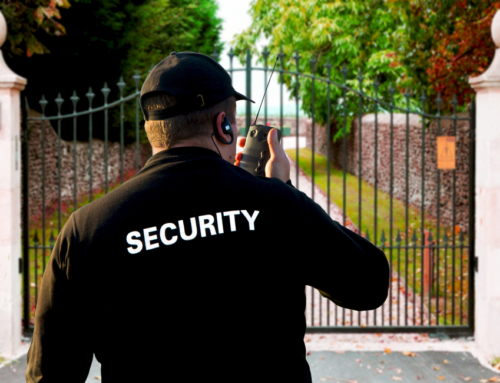Home is where we should feel safest, but ensuring that safety requires more than just locking the doors at night. Whether you’re moving into a new house or looking to upgrade your existing security measures, having a clear and actionable plan is crucial.
“Effective security begins with understanding the unique vulnerabilities of each home. By taking a proactive approach and implementing safety measures, homeowners can create a safe haven that protects what matters most.” – Charles Law, CEO of Law Security & Investigations, Inc.
To help you safeguard your property and loved ones, LSI has put together a 5-point checklist that covers essential aspects of residential security.
1. Secure All Entry Points
The first step in fortifying your home’s security is to ensure that all potential entry points are well-protected. This includes doors, windows, and any other access points like garages or basement entrances.
- Doors: Install solid core or metal doors with high-quality deadbolt locks. Consider adding a secondary lock, such as a chain or a door bar, for extra security. Reinforce door frames and hinges to prevent forced entry.
- Windows: Use window locks or security bars, especially on ground-level windows. Consider adding shatterproof film or reinforced glass to make windows more resistant to break-ins.
- Sliding Doors: These are often overlooked. Secure them with a rod in the track to prevent them from being forced open.
2. Invest in a Home Security System
A home security system acts as a powerful deterrent to potential intruders and provides you with peace of mind.
- Alarm Systems: Choose a system that includes door and window sensors, motion detectors, and loud alarms. Opt for professional monitoring services for added security, where a security company will alert authorities if an alarm is triggered.
- Cameras: Install security cameras at key locations such as entryways, driveways, and backyards. Modern systems allow for remote monitoring via smartphone, so you can keep an eye on your property from anywhere.
- Smart Home Integration: Consider smart security systems that integrate with your other smart home devices. Features like remote access, real-time alerts, and automation can enhance your overall security.
3. Enhance Outdoor Lighting
Proper lighting is an effective way to deter intruders, as it eliminates potential hiding spots around your property.
- Motion-Activated Lights: Install these around the perimeter of your home, particularly in dark corners, pathways, and near entry points. They will startle would-be intruders and draw attention to any suspicious activity.
- Smart Lighting: Use smart lights that can be scheduled to turn on and off at different times to create the illusion of someone being home, even when you’re away.
- Pathway Lighting: Illuminate walkways, driveways, and gardens to improve visibility and prevent accidents while also boosting security.
4. Implement Neighborhood Watch Practices
A strong community presence is one of the most effective ways to enhance residential security.
- Get to Know Your Neighbors: Building relationships with your neighbors can create a supportive network where everyone looks out for one another.
- Neighborhood Watch Program: Join or start a neighborhood watch program. These programs encourage vigilance and communication among residents, helping to reduce crime in the area.
- Share Information: Keep each other informed about suspicious activities or recent incidents in the neighborhood. Use social media groups or apps like Nextdoor to stay connected.
5. Secure Valuables and Sensitive Information
Even with strong physical security measures, it’s essential to protect your valuables and sensitive information within the home.
- Safes: Store valuable items like jewelry, cash, and important documents in a heavy-duty safe that is bolted to the floor. Choose a safe that is fire-resistant and has a complex lock mechanism.
- Document Security: Shred sensitive documents before disposing of them to prevent identity theft. Consider storing important papers digitally in a secure, encrypted cloud service.
- Cybersecurity: With smart devices becoming more common, securing your home network is crucial. Use strong, unique passwords for your Wi-Fi network and all connected devices. Regularly update your security software and be cautious of phishing scams.
Residential security doesn’t have to be overwhelming. By following this 5-point checklist, you can take practical and effective steps to protect your home and loved ones. Remember, security is an ongoing process that requires regular updates and vigilance. By staying proactive and informed, you can create a safe and secure environment for your family.
For more tips and information on residential security, feel free to contact us to consult with a security professional.






